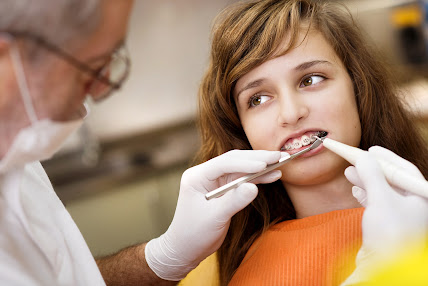Drugs Used in Oral Sedation Dentistry
Have you heard of sedation dentistry? As the name suggests, it consists of using a sedative to calm a patient during a dental procedure.
According to the National Center for Biotechnology Information, 10% to 16% of grown adults suffer from dental anxiety or dentophobia. We offer sedation dentistry in North York to treat these patients and others who may need it, such as patients with special needs or children with a bad gag reflex or misconduct in a dental appointment.
Among the types of sedation dentistry, you may find three:
Gas Sedation
If you are looking for sedation dentistry near you, but your level of anxiety is mild, this type is perfect for you. Unlike others, it does not put you to sleep, and the effects wear away as soon as your doctor removes the mask from your nose.
Gas sedation is nitrous oxide and oxygen. Our dentist in North York places a mask over your nose for you to inhale this combination and feel calm right away.
You will feel relaxed during the treatment, and as soon as you finish, you will feel fine and may even get back home without any help.
Oral Sedation
When a dentist near you prescribes a pill before the procedure, it is oral sedation. Among the drugs they may prescribe, you may find Benzodiazepines, such as:
- Diazepam – When the dental work is extensive, your doctor may prescribe Diazepam because effects remain for a long time.
- Triazolam – Besides being excellent for calming patients before a dental appointment, some doctors prescribe it for patients with sleep disorders.
- Lorazepam – It is another benzodiazepine, perfect for long dental appointments.
- Midazolam – The effects wear away in a shorter time, which is why it is for simple treatments.
Antihistamines are also an option for dental anxiety. Your doctor may choose Hydroxyzine for short dental appointments.
If you opt for oral sedation, you must bring a friend to the appointment who drives you back home since you will feel drowsy after the treatment.
Depending on your level of anxiety, they will choose one or another.
They may prescribe a single dose or one the night before and another one about an hour before the appointment.
Intravenous Sedation
For severe cases of anxiety, your doctor may suggest administering the sedative intravenously. In these cases, the effects remain long after the treatment is over, so you must arrange your way back home and resume your activities the day after (and take it easy for the rest of the day).
Consultation Visit
Before making any decisions, we recommend having a consultation visit with your doctor to discuss your medical history. It is essential that, if you are taking any medications, you tell your dentist since some may interfere with the sedatives.
The Importance of Dental Checkups
Usually, people with dental anxiety skip their dental checkups because they fear the dentist. However, it is worse because a doctor will not detect early signs of an oral issue; therefore, they are more likely to develop oral problems that will require extensive treatment.
We suggest that you visit your dentist every six months and take care of your oral health at home to prevent dental problems and the need to undergo major dental work. Brushing your teeth twice a day, flossing between teeth, avoiding sugary from starchy foods, and keep up with your checkups will help you achieve excellent oral health. This way, you will keep extensive dental procedures away and enjoy better life quality.
If you have any other questions, contact us today!



Comments
Post a Comment